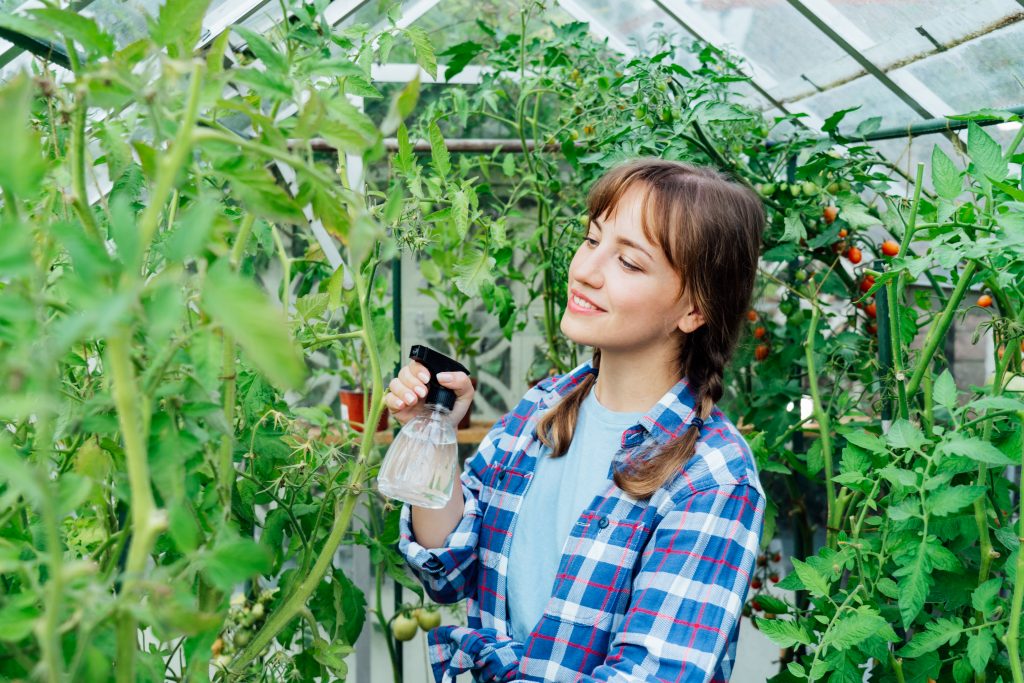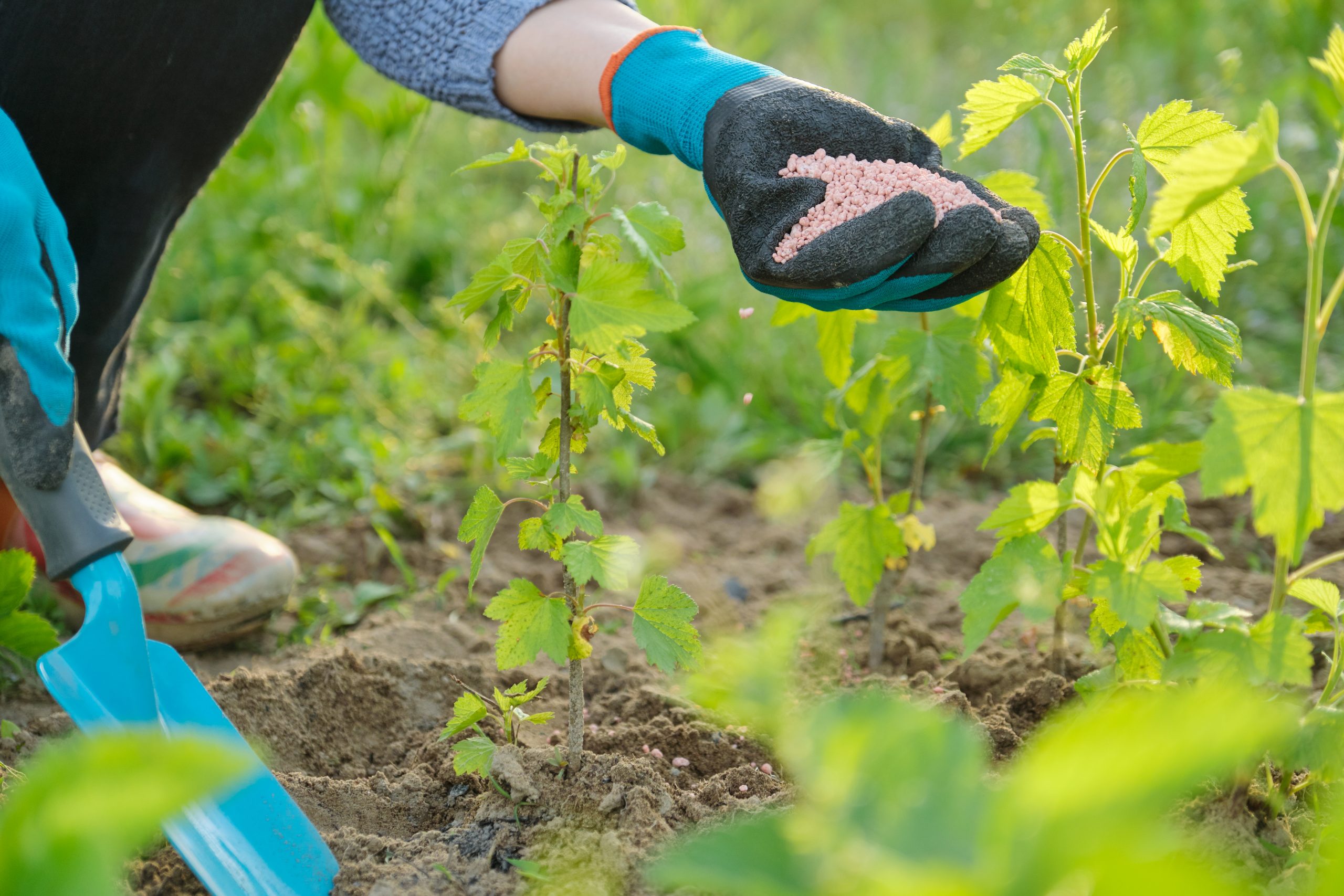There are many good things about using organic fertilisers in your home yard. Organic fertilisers come from natural sources like plants or animals, while manmade fertilisers are made from chemicals that are bad for you. These organic fertilisers not only give plants the nutrients they need, but they also make the soil more fertile. By adding organic matter to the soil, they improve its structure and make it easier for nutrients to get to plants, which helps them grow in a healthy way.
Also, organic fertilisers make it possible for plants to grow slowly and steadily, which strengthens their roots and improves their general health. They also encourage the activity of good bacteria in the soil, which makes more minerals available for plants. Using biological fertilisers also lessens the need for synthetic fertilisers, which are made using fossil fuels.
Using organic fertilisers will keep your yard healthy while also lowering the risk of hurting people and the environment. For plants, organic fertilisers are a great way to get nutrients, and they also add important elements to the soil that plants need to grow. By using organic fertilisers, you can make good soil that plants can grow in while also keeping the ecosystem’s natural balance.
Definition of Organic Fertilizers
Chemicals that come from plants or animals are used to make organic fertilisers. They give plants the nutrients they need, which makes the dirt more fertile and helps plants grow in a healthy way. Chemical or manufactured fertilisers are made from chemicals, but organic fertilisers are made from natural materials and don’t have any chemicals that are bad for you. For home farmers who want to improve the health of their plants and the land in general, they are a great choice.
Benefits of Using Organic Fertilizers
There are many good reasons to use organic fertilisers in your home yard. Organic fertilisers release nutrients slowly, unlike manufactured fertilisers. This keeps plants from getting too much food and chemical burn. This makes plant growth healthy and more natural.
Organic fertilisers are also better for the earth and your garden in the long run. Compost, animal waste, and plant waste are all natural things that are high in organic matter and are used to make organic fertilisers. These fertilisers make the soil better by changing its structure and quality. This makes it better at holding on to water and nutrients. This encourages the growth of good bacteria and fungi in the soil, which makes your garden’s environment thrive.
Using organic fertilisers is another way to help clean up the earth. Synthetic fertilisers are made from fossil fuels and often contain chemicals that are bad for you. They also pollute the water and air. Organic fertilisers, on the other hand, are made from resources that can be used again and again, and they don’t release chemicals that are bad for the environment.
Also, organic fertilisers make life better in country areas. When you use organic fertilisers, you don’t have to use sewage sludge or other waste products that could be bad for the environment or people’s health.
Soil Structure
The structure of your soil is very important to the success of your home garden, and using organic fertilisers can help you keep it in good shape and make it better. Organic fertilisers are made from natural materials and are high in organic matter, which is important for improving the structure of the soil.
Organic fertilisers help keep the structure of the soil healthy by encouraging the growth of good microorganisms and earthworms. These tiny creatures and earthworms help the soil stick together by making solid bits that let water soak in better and roots get deeper. They make pathways and holes in the soil by breaking down the organic matter in the fertilisers. This makes the soil better at holding water and nutrients. This keeps the soil from getting too wet and makes sure it drains well, which lowers the risk of root rot and other plant diseases.
Having well-structured dirt in your yard is good for many reasons. The improved soil structure makes nutrients more available by giving plants more surface area to take them in and lowering the rate at which nutrients are lost. This makes the plants grow better and stronger. Improving the structure of the soil also helps the flow of air through it, which is important for plant roots to grow and work properly.
Soil Fertility
Fertility in the soil is very important for any home garden because it has a direct effect on how plants grow and how healthy the garden is generally. Organic fertilisers are very important for keeping the soil fertile and helping plants grow strongly.
Organic fertilisers give the bacteria in the earth the nutrition they need to grow. Bacteria, fungi, and earthworms are some of the critters that help keep the soil healthy by breaking down organic matter and releasing nutrients that plants can easily use. This process of nitrogen cycling makes sure that plants always have the nutrients they need to grow and stops them from falling short.
Organic fertilisers not only add nutrients that plants need, but they also improve the structure of the soil, keep water in it, and help good organisms grow. Soil is improved by organic matter like compost, animal manure, and plant waste that is found in organic fertilisers. When these organic fertilisers are mixed into the soil, they make it more solid by making the soil crumbs stick together more and making pathways and holes. This improved soil structure makes it easier for water to soak in, roots to grow, and nutrients to be absorbed.
Good bugs, like earthworms, can grow faster in areas where organic fertilisers are used because they contain organic waste. These living things help break down organic waste, improve the air flow in the soil, and make nutrients more available. They help keep the earth healthy and fertile, which makes it a great place for plants to grow.
Plant Growth and Productivity
Organic fertilisers are a great way to help your plants grow and make your yard more productive. Organic fertilisers are better than manufactured fertilisers in many ways that make plants stronger and healthy.
One great thing about organic fertilisers is that they help roots grow stronger and deeper. The organic matter in these fertilisers makes the structure of the soil better, which makes it easier for roots to grow and form a strong system. In turn, this makes it easier for plants to take in water and nutrients, which makes them healthier and stronger.
Organic fertilisers also make sure that plants get the right amount of important nutrients. They slowly and steadily release nutrients, making sure that there is a steady supply for a long time. This keeps the balance of nutrients even and lowers the risk of over-fertilizing, which is bad for plants.
Organic fertilisers also make plants less likely to get illnesses. Good bacteria in the soil grow faster because of the organic materials used in these fertilisers. Pathogens that are dangerous to plants are slowed down by these bugs. This makes plants healthier generally and less likely to get illnesses.
Organic fertilisers also make plants better able to handle dryness and stress. The organic matter in these fertilisers makes the soil better at holding water and lowering water flow. This makes sure that plants can get enough water even when it’s dry outside. Plants can handle dry stress and other problems better when this is done.

Conclusion
In conclusion, home gardeners can get a lot out of using organic fertilisers. They not only help roots grow stronger and deeper, but they also give plants a steady supply of nutrients they need without risking too much fertilisation. Organic fertilisers also make plants more resistant to diseases and stress, which makes them stronger in tough situations.
One great thing about organic fertilisers is that they are affordable. Organic options to manufactured fertilisers may be cheaper, especially when compost units are used. This means that gardeners in both country and urban places can use them. They are a safe and inexpensive choice to chemical fertilisers.
Through using organic fertilisers in your gardening, you not only improve the health of your plants, but you also help the land and the world as a whole. Now that you know what organic fertilisers can do for you and your yard, why not give them a try?



